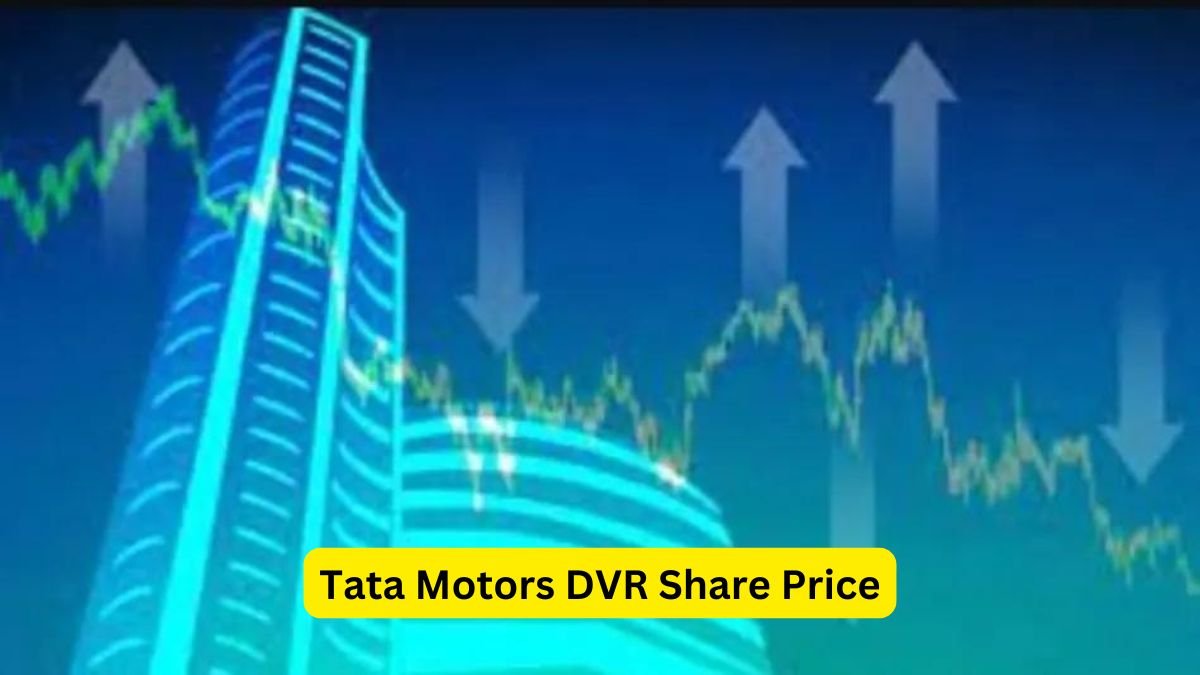Tata Motors DVR (Differential Voting Rights) shares have been a topic of keen interest for investors over the years due to their unique structure and benefits. As the trading of these shares was recently suspended, understanding the intricacies of Tata Motors DVR shares, their price trends, and the reasons behind their suspension becomes crucial for any potential or current investor. In this article, we explore all the critical details surrounding Tata Motors DVR shares, including their unique characteristics, market performance, and the factors influencing their recent suspension.
What Are Tata Motors DVR Shares?
Tata Motors DVR shares are a special class of equity shares issued by Tata Motors that come with differential voting rights. Unlike ordinary shares, DVR shares offer lower voting rights — typically, DVR shareholders get one vote for every ten shares they hold. In return for this reduced voting power, investors are compensated with a higher dividend yield, often ranging from 5-10% more than what regular shareholders receive. This structure is designed to attract retail investors who are more interested in consistent dividends rather than influencing corporate decisions.
The Recent Suspension of Tata Motors DVR Shares
The trading of Tata Motors DVR shares was recently suspended, causing a stir in the market. This suspension was announced by Tata Motors and has been attributed to regulatory and strategic reasons. As detailed in The Economic Times, the suspension is part of a strategic move by Tata Motors to simplify its capital structure. The company aims to convert DVR shares into ordinary shares to streamline shareholder rights and align with global best practices.
Why Did Tata Motors Decide to Suspend DVR Shares?
Several key factors have contributed to Tata Motors’ decision to suspend trading of its DVR shares:
1. Simplification of Capital Structure
The primary reason for the suspension is Tata Motors’ intent to simplify its capital structure. Having multiple classes of shares can lead to confusion among investors and complicate the company’s financial reporting. By converting DVR shares into ordinary shares, Tata Motors aims to present a clearer, more straightforward capital structure that is easier for investors to understand.
2. Enhancing Shareholder Value
The conversion of DVR shares into ordinary shares could potentially increase the overall value for shareholders. Since DVR shares typically trade at a discount compared to regular shares due to their lower voting rights, converting them into ordinary shares could eliminate this discount, thus enhancing the market value of all shares.
3. Aligning with Global Practices
In the global market, companies with simpler share structures are often more attractive to institutional investors. Tata Motors’ decision to phase out DVR shares aligns with global corporate governance practices, which favor equal voting rights for all shareholders.
Impact on Tata Motors DVR Share Price
The suspension of Tata Motors DVR shares has had a significant impact on their price. Before the suspension, DVR shares were trading at a discount compared to the ordinary shares of Tata Motors. This discount is a common characteristic of DVR shares worldwide due to their reduced voting power. However, the announcement of the suspension and the potential conversion into ordinary shares led to a surge in demand, driving the price closer to that of ordinary shares.
How Does the Conversion Affect Shareholders?
Shareholders of Tata Motors DVR shares stand to gain from this conversion. With DVR shares traditionally trading at a discount, their conversion into ordinary shares could potentially lead to an immediate appreciation in their market value. This is a particularly attractive proposition for long-term investors who have held onto their DVR shares despite the lower voting rights, as they could now receive shares with full voting rights and potentially higher market value.
Market Reaction to the Suspension and Conversion Plan
The market reaction to Tata Motors’ announcement has been largely positive, with many analysts viewing the move as a step towards better corporate governance and increased transparency. The suspension of trading and the plan to convert DVR shares have been seen as a positive strategy to simplify the company’s shareholding structure, aligning it with international norms. This has led to increased investor confidence, as evidenced by the recent uptick in the price of Tata Motors ordinary shares.
Analyst Opinions and Future Outlook
Several analysts believe that Tata Motors’ decision will have long-term benefits for the company and its shareholders. By simplifying the share structure, Tata Motors can potentially attract more institutional investors, who are generally more comfortable investing in companies with a single class of shares. Furthermore, the conversion plan could eliminate the long-standing discount on DVR shares, unlocking value for existing shareholders.
Potential Risks and Challenges
While the conversion of DVR shares into ordinary shares offers several advantages, there are also potential risks and challenges:
1. Regulatory Approvals
The conversion of DVR shares into ordinary shares requires approval from various regulatory bodies, including the Securities and Exchange Board of India (SEBI). Any delay or denial of such approvals could impact the timeline of the conversion and potentially affect share prices.
2. Shareholder Approval
For the conversion to proceed, Tata Motors will need the consent of both ordinary and DVR shareholders. While the majority of shareholders might support the move due to the potential value appreciation, there could be resistance from some shareholders who prefer the higher dividend yield associated with DVR shares.
3. Market Volatility
The announcement of the suspension and conversion has already led to increased market volatility. The final impact on share prices will depend on several factors, including the timeline of the conversion, regulatory approvals, and overall market conditions.
Conclusion
The suspension of Tata Motors DVR shares marks a significant development in the company’s strategy to streamline its capital structure and align with global practices. While there are potential risks associated with this move, the overall sentiment in the market has been positive, with analysts predicting long-term benefits for shareholders. As Tata Motors continues to navigate this transition, investors will be keenly watching the developments and potential impact on share prices.
For those interested in the latest updates and further insights into how Tata Motors is shaping its future, keeping an eye on the market trends and regulatory announcements will be crucial.
In this blog, we have provided detailed information on Tata Motors DVR Share Price. We appreciate you taking the time to read this post about Tata Motors DVR Share Price in our blog! If you find this information useful, please share this blog with your friends and family so that they can also know about Tata Motors DVR Share Price. Visit our website homepage weblog365.in to read more interesting and informative blogs and stay updated.

My name is Yogesh Pandey, and I hail from Lucknow, India. I work in digital marketing. I have been blogging since 2023. I write about Technology, Entertainment, Automobile, and Lifestyle providing insights to help others find quality products. I am excited to have the opportunity to collaborate with weblog365.in now. You can reach out to me via email at weblog365.in@gmail.com. Let’s connect! 🙏

